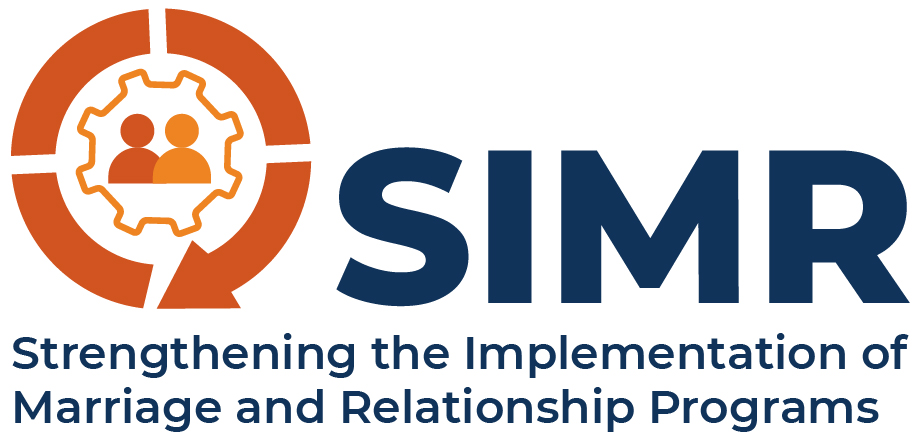Project Overview
The SIMR team strives to understand implementation challenges that healthy marriage and relationship education (HMRE) programs face and test potential solutions to those challenges in 10 HMRE programs.
While the knowledge base about the effectiveness of HMRE programs is growing, less is understood about effective implementation approaches. Findings suggest that HMRE programs face various implementation challenges, which in turn make evaluating program effectiveness more difficult.
U.S. Department of Health and Human Services, Administration for Children and Families, Office of Planning, Research, and Evaluation


Strong, supportive families are critical to the health and well-being of children. Since 2005, Congress has authorized federal funding for healthy marriage and relationship education (HMRE) programs to encourage the formation of healthy relationships and stable, two-parent families. Administered by the Office of Family Assistance (OFA) within the Administration for Children and Families (ACF) at the U.S. Department of Health and Human Services, the grants support programs that offer HMRE programming to couples, adult individuals, and youth.
Research has shown that HMRE programs often face implementation challenges in areas such as recruitment, participation, and program completion. In 2019, ACF’s Office of Planning, Research, and Evaluation (OPRE) contracted with Mathematica and its subcontractor Public Strategies to conduct the SIMR project to develop and test promising implementation solutions to these challenges.
What activities will the study pursue?
SIMR will use rapid-cycle learning to pilot and refine promising solutions. Rapid-cycle learning involves testing and refining solutions in a series of short cycles to pilot the solution, collect and analyze data on the pilot, refine the solution, and try it again. By helping HMRE grantees address implementation challenges, SIMR will also build their readiness for evaluation of program effects. Specifically, the SIMR team will:
- Identify implementation challenges and solutions that are supported by evidence
- Identify and partner with HMRE programs to participate in rapid-cycle learning
- Work closely with program partners to pilot test and refine the solutions
- Recommend program partners for participation in a possible future evaluation
- Obtain input from research and programmatic experts and stakeholders to ensure the study includes diverse perspectives
What will the study produce?
The SIMR team will share findings widely, including:- A synthesis of common implementation challenges in HMRE programs and promising solutions
- A description of program partners and plans for piloting solutions to common implementation challenges
- Rapid-cycle learning findings about the feasibility of using specific solutions, and how well they worked
How do I join the project mailing list?
Email our project inbox, SIMR@mathematica-mpr.com, to receive newsletters and project updates.
Evidence & Insights From This Project

Serving Young Fathers in Responsible Fatherhood Programs
This white paper explores common challenges that Responsible Fatherhood (RF) programs face in recruiting and engaging young fathers in their services. It also offers strategies that programs can use to help overcome these challenges.
Learn MoreRoad Maps for Change: Youth-Serving HMRE Grant Recipients' Rapid Cycle Learning in the SIMR Project
Road Maps for Change: Adult-Serving HMRE Grant Recipients' Rapid Cycle Learning in the SIMR Project
Conducting Rapid Cycle Learning with Healthy Marriage and Relationship Education Programs for Youth
Related Staff
Efficiency Meets Impact.
That's Progress Together.
To solve their most pressing challenges, organizations turn to Mathematica for deeply integrated expertise. We bring together subject matter and policy experts, data scientists, methodologists, and technologists who work across topics and sectors to help our partners design, improve, and scale evidence-based solutions.
Work With Us




